THE REVIEW: BOOM! THERE GOES JUNE
THE REVIEW
June went by too soon but we made sure to catch the bright spots for our readers.
So with no further ado, we give you June!
MUSIC AND ENTERTAINMENT
JAY-Z DROPS 4:44 WHILE BEYONCE DROPS TWO NEW HUMANS ON PLANET EARTH
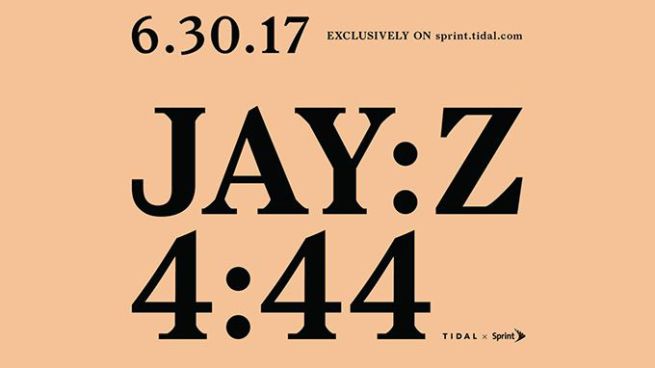
After a monthlong teaser campaign involving no less than five advance video clips, Jay-Z’s new album “4:44” finally dropped, three minutes before its scheduled release at midnight ET on June 30. The advance ads featuring pledged that the album will be a Tidal/ Sprint exclusive, as part of the carrier’s $200 million deal with he Jay Z-owned streaming service. But in a twist that was met with an angry reaction from many fans, only people who signed up for Tidal before the album’s release and current Sprint users will be able to access it, at least for now.
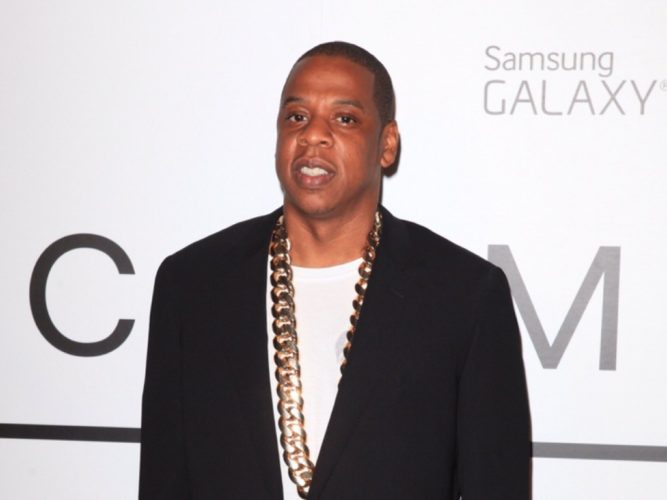
It’s been quite a month for the Carters. Just a couple of weeks after Beyoncé reportedly gave birth to twins — though the family has yet to release an official statement — Jay-Z dropped his 13th solo album. “4:44” debuted Thursday night at midnight on the rapper’s music streaming platform, Tidal, and the Internet has buzzed about it ever since with shout outs from celebs such as Snoop Dogg, 50 Cent, Eric Benet and many more.

And as if twins and a new album wasn't enough, Jay-Z also revealed this month that he was changing the stylization of his name from Jay Z to JAY-Z.
Check out one of the videos titled "Adnis" for the teaser campaign here. This one is starring Oscar winner, Mahershala Ali playing a boxer:
Upon its release, the 10-track album streamed on iHeartRadio across 160 Pop, Rhythm and Urban radio stations in the U.S., and fans were able to hear the entire album on Urban and Rhythm formats throughout the day until midnight ET on July 1. iHeart also featured exclusive audio from Jay-Z discussing the album.
The album will be available on Apple Music after a week of exclusivity on Tidal, and it seems very likely that it will be available on iTunes as well; another source says it will be available on all major services. It also seems inevitable that “4:44” will also be available on CD and vinyl at some point. Jay-Z pulled his catalog, with a handful of exceptions, from Spotify and Apple Music in April.
The exclusive epidemic of 2014-16 has largely abated, as the realization crept in that the only winners in that arms race were the streaming service with the exclusive and the artist and/or label who pocketed whatever benefits came with it. Spotify never joined in the exclusive wars — as the established market leaders, they didn’t need to — and Apple Music recently has focused more on its burgeoning video service and premieres on its Beats 1 radio station. A key turning point came last August when Frank Ocean delivered an uneven album called “Endless” to finish off his contract with Def Jam, only to release “Blonde,” a much more satisfying album, via Apple Music just two days later. The act inspired Lucian Grainge, chairman/CEO of Def Jam’s parent Universal Music Group, to ban exclusives by the company’s artists.
But Tidal has doubled down on them — according to reports, $75 million of the Sprint deal is dedicated to exclusives — with limited success. For around 18 months, Prince’s catalog was available exclusively on the service — a situation that ended in February — and Kanye West’s “Life of Pablo,” which was marred by a baffling release strategy that was apparently directed by the artist himself, was a Tidal exclusive for a few weeks before it suddenly appeared on other services. In April Jay-Z pulled nearly his entire catalog (with a handful of exceptions) from Spotify and Apple Music.
The most famous example, of course, is “Lemonade,” which Beyonce has kept faithfully exclusive on her husband’s streaming service since its release on April 23, 2016 — to its detriment, at least chart-wise. In Nielsen Music’s year-end report for 2016 — which combines physical sales, track-equivalent units (TEA, whereby 10 song downloads equal one album) and streaming equivalent units (SEA, where 1,500 on-demand streams equal one album) — Drake’s “Views,” the year’s top album, and “Lemonade,” No. 3, were not dramatically far apart in two of the categories: physical (1.607 million for Drake vs. 1.554 million for Beyonce) and TEA (Drake’s 509,000 to Beyonce’s 418,000).
But streaming showed a vast difference: 2.024 million units for Drake compared with 214,000 for Beyonce. Nearly 10 times more streams — than Beyonce.
The discrepancy is not surprising. Earlier this month, Spotify claimed to have reached 140 million users worldwide; in March it said 50 million of them were paying subscribers. Also in June, Apple Music said it had passed 27 million paying subscribers. In March of last year Tidal claimed to have 3 million subscribers, but a January report in a Norwegian newspaper, citing internal company documents, said that as of January 2016 it had just 1.2 million activated accounts and 850,000 paying subscribers.
While the Beyonce and West exclusives probably boosted the service’s numbers, it remains far behind its chief competitors — a situation that “4:44” seems unlikely to change significantly. But this strategy, if accurate, means Jay gets to have it both ways: A splash and a big payday deal for the exclusive, followed by conventional streaming and physical releases at a time of his choosing. We'll know more about how this strategy panned out for Mr. Carter throughout July, so watch this space for our overall consensus.
So far, it seems that 4:44, if nothing else, is a candid and old school rap lesson on how to effectively call out your foes, family, friends and even yourself.
Cathartic for Jay...either way.
Speaking of calling people out, this next story can only be described as:
THE GAME BLAME
In recent news, Viacom Blasts The Game's Sexual Assault Lawsuit as 'Absurd'.
The alleged sexual misconduct that briefly shut down production of ABC's Bachelor in Paradise has provoked no public litigation thus far. And so, observers will be left guessing how Warner Bros. TV might have attempted to fend off potential claims from BIP contestants, Corinne Olympios and DeMario Jackson, over what happened on the first day of shooting.
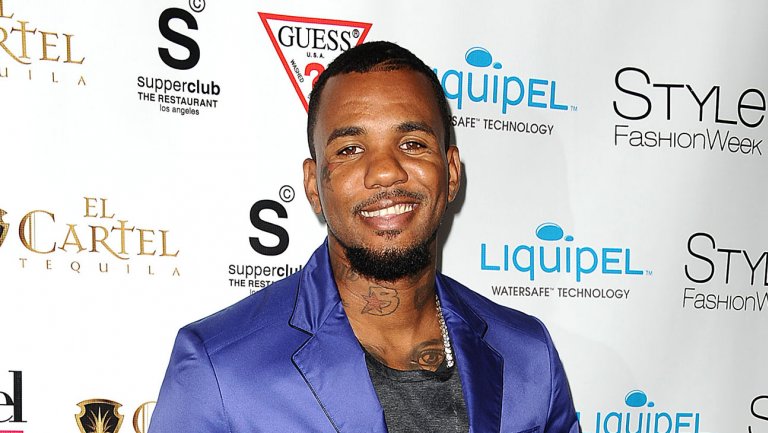
Might the studio have raised First Amendment arguments, turned to a cast contract disclaiming responsibility for "unwelcome/unlawful contact or other interaction among participants," or argued that it had not proximately caused any assault? Perhaps. Maybe a dispute involving Jayceon Taylor, the hip-hop star known as The Game, can help answer legal questions.
Priscilla Rainey, who was cast to be a love interest on the VH1 reality show She's Got Game, alleges she was sexually assaulted by Taylor during an "afterhours date." She sued for battery and testified that Taylor was highly intoxicated when the two went to a Chicago-area nightclub and he forcefully reached his hands inside her dress to rub her. After a trial last November, she scored a $7.1 million verdict.
This month, in a twist, Taylor is suing Viacom, alleging the media company owed him a duty of reasonable care to ensure that the contestants were fit and suitable for participation. In other words, the rapper blames Viacom for what happened.
Last week, Viacom brought a motion to strike Taylor's complaint and raises some of the very defenses highlighted above.
"It is absurd for Taylor to claim that Viacom’s alleged approval of Rainey being cast on the Program is the proximate cause of the jury’s verdict against him for allegedly sexually assaulting her," states Viacom's SLAPP motion. "The superseding causes of his purported damages include, most obviously, his alleged sexual battery of Rainey, as well as her filing of a civil lawsuit against him, his failure to appear for trial, and the jury’s decision to credit her testimony and award her $7.1 million. Each is an independent event that breaks any purported chain of causation."
Viacom tells a California judge that Taylor's claims arise from conduct in furtherance of its First Amendment rights. Leaning on a body of prior court decisions, the media company characterizes the process of casting as an "integral part of the creation of a television program" and says that Taylor, his dating life, and She's Got Game qualify as issues of public interest under the California statute meant to deter frivolous court actions impinging upon constitutionally protected activity.
Viacom CEO Bob Bakish Says MTV Set to Be More 'Upbeat' If a judge agrees, the next question will be whether Taylor can show a probability of prevailing upon claims. If not, the lawsuit fails.
Viacom expresses doubts as to Taylor's ability to demonstrate how Rainey's past made the alleged sexual assault foreseeable. Furthermore, Rainey's lawsuit and Taylor's defense of which are deemed to be "subsequent intervening causes of Taylor's alleged harm." Viacom, represented by Alonzo Wickers and Jonathan Segal at Davis Wright Tremaine, go so far as to recount some of the odd things that happened in the civil case between Rainey and Taylor. For example, at one point, the judge in the case is said to have reprimanded Taylor's lawyer by saying, "And you — 90 percent of the time, you end up getting creamed by her, when you talk about the panties and you talk about muffin top. I mean, it's just irrelevant, and you just get destroyed when you do that. So, for the sake of the jury and the sake of yourself, just focus on the important stuff and don't chase Ms. Rainey down any rabbit holes."
Even if the judge thinks there's some solid connection between Viacom's casting of Rainey and the $7.1 million judgment, Viacom also brings up the contract that Taylor, through his loan-out corporation, signed in advance of starring on the VH1 show.
"Taylor explicitly acknowledged that his participation in the Program may cause emotional strains upon him, and agreed 'to accept any and all risks of participating in the Project,' states Viacom's motion. "He separately released Viacom from 'any and all manner of liabilities, claims and demands of any kind ... which arise out of or relate to the use of the Footage in connection with the production ... of the 22 Series[.]' Having done so, he cannot now sue Viacom for any such alleged harms related to the Program."
Read Viacom's full SLAPP motion at THR.com.
FASHION
EDITOR-IN-CHIEF NO MORE
Alexandra Shulman departs British Vogue.
AFTER 25 years at the helm of British Vogue, Alexandra Shulman departed the Media Mogul as she wants to “experience a different life and look forward to a future separate to Vogue”.
So, as the curtain closes on a career spanning nearly 40 years at Condé Nast, the last word went to the inimitable editor-in-chief.
Here is a re-cap of what she shared with Vogue regarding what she will miss, what she won't, and what she's looking forward to the most as she embarks on life after.
What She Will Miss...
Working With Everyone At Vogue
"I really like spending my days with lots of people and to spend them with people you have chosen to spend them with is a great luxury"
Walking In The Front Door Of Vogue House
"I’ve been doing it on and off for about 40 years – that will be a huge thing to not have as a part of my life"
Getting The Scoop
"I’m going to miss knowing everything that there is to know about what’s going on in fashion and being in the epicentre"
The Vogue Beauty Cupboard
"Because I get to try lots of new brands out for free and it's always there for a last-minute emergency"
Having A Pink Office
"I’m going to miss having a lovely pink office – where I’ve been able to keep all my books as it’s an escape from home"
Having An IT Department
"The thought of operating solo with technology is very frightening!"
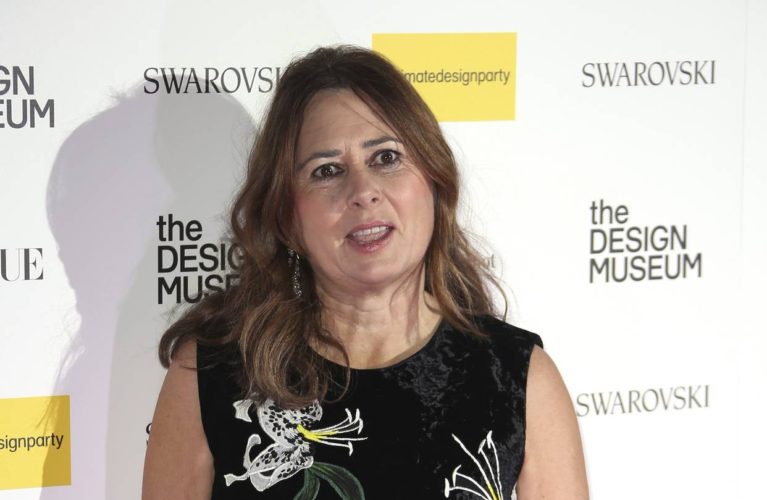
What She Won’t Miss...
Breaking Bad News
"I won’t miss having to tell people I don’t like something they have done – I hate that"
Monday Mornings
"I won’t miss being in the office every Monday morning – it will be a great treat to treat Sunday evening as a part of the weekend"
Not Getting The Scoop
"I won’t miss being irritated if someone has a story that I wanted to have – but then I will miss being the one to have the story"
And What She Is Looking Forward To The Most
"I’m looking forward most to doing some things I’ve never done before – meeting new people and feeling that I’m moving forward. I’m really looking forward to a sense of a future and it's as amorphous as that - it’s really exciting"
Victoria Beckham, David Bailey, Christopher Bailey and Rosamund Pike joined the Vogue team to bid farewell to editor-in-chief Alexandra Shulman.
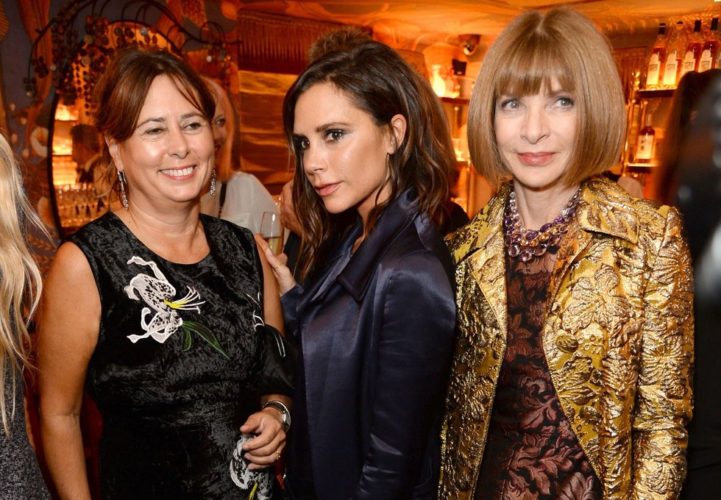
Making the most of the summer sunshine, the outdoor terrace of the Dock Kitchen welcomed the fashion industry’s most famous faces to toast Shulman’s 25-year tenure, including contributing editors like Lisa Armstrong, Laura Bailey, Sophie Dahl and Nigella Lawson, among many others.
Guests sipped on Whispering Angel rosé and Belvedere Vodka cocktails, which were paired with a delicious spread of cold and hot mezze plates including hummus, roasted aubergine, lamb and freshly made flatbreads. Salted caramel ice cream rounded off the celebrations to what was a bittersweet celebration of a much-loved and widely admired editor.
ADVERTISING, EVENTS, CAUSES AND BRANDS
THE CANNE AND THE CANNE-NOT'S
Cannes Lions 2017
Congratulations to all of this year's Lions winners. Check out the work below and take a read about Publicis Group and why they simply Canne-not attend the event next year!
Arthur Sadoun took over as president-CEO of Publicis Groupe, but he's already made an impact -- to the solar plexus of the Cannes International Festival of Creativity. From his table at the Majestic, Sadoun said that the holding company would sit out the industry's biggest creative event next year, as well as other awards programs and SXSW and CES for good measure. It was a statement that shook many in Cannes, including many Publicis staffers who had not been informed, or had just learned the news while at Cannes.
So the news begs the question: Does Cannes Matter?
Sadoun said he will put the money saved during the one-year hiatus toward the development of an internal, AI-powered professional assistant program called Marcel, which itself is a mystery to many at Publicis.
But the move was also a statement about Cannes and its return on investment, which has been top of mind for many agency holding companies in recent years.
Publicis represents the third biggest group of entries at the festival, behind Omnicom at No. 1 and WPP Group at No. 2. One executive estimated that Publicis networks spend about $2.2 million a year on award entries, with about 25% of that going to Cannes, but others said the total is much higher.
That might not seem like much for a holding company like Publicis, but another executive with knowledge of the matter estimated that when it's all added up -- travel, hotels, food and rose -- Publicis put out about $20 million this year to send its contingent to Cannes.
The pullback affects all Publicis networks, including Leo Burnett, Publicis Worldwide, Saatchi & Saatchi and BBH, whose creatives rely on awards to burnish their portfolios and angle for promotions or new jobs.
One Publicis insider, asked how employees were taking the news about no awards for a year, said: "Rough."
An executive with a Publicis digital agency said the move was announced internally only about an hour before the news broke, and many Publicis Groupe employees at Cannes didn't know about it until told by others. Part of that stems from the "Cannes bubble" effect of back-to-back meetings combined with spotty WiFi and wireless coverage.
Trying to make the best of it, one creative said a one-year hiatus would allow more time for planning, free of the mad rush to prepare entries for festivals.
But no one might be crying more than Ascential, the owner of the Cannes Lions. The festival generated $72 million in revenue last year. About 10% of its entries come from Publicis, according to people familiar with the situation. Ascential's stock that same day was down 3.8% in London late afternoon trading.
'Really problematic'
There is also the threat that others could follow suit. Festival goers familiar with WPP said its agencies had been told to cut Cannes attendees by 50% this year. And the festival has ads scattered around this year, reminding attendees of the value it brings.
Then there's the question of how clients are taking it.
The decision is going to be "really problematic," said Syl Saller, global chief marketing officer for liquor giant Diageo, which uses Publicis Groupe's Leo Burnett in Australia. "I do think it's a mistake because creatives in agencies do value awards and one of the reasons we value awards is we have seen enough data that awards for creativity do lead to better results."
Diageo uses Cannes to get to know agencies it is considering hiring, said Mark Sandys, who oversees Diageo's global beer business, as well as Smirnoff and Baileys. This week the company's agenda includes a two-hour speed dating session with a group of agencies it is targeting."Some of the agencies I've met, big and small, I come away from the dinners or meetings thinking, 'Wow those are great people to work with, we should be thinking about them next time something comes up for a pitch.' And that's something Publicis is just not going to be in the conversation in."
Chevrolet Global Chief Marketing Officer Tim Mahoney, who works with some Publicis shops in international markets, said the holding group won't be hurt by the move overall, but had his reservations.
"Both Cannes and Effies for us are important -- Effies in particular but obviously Cannes because of the creativity," Mahoney said, referring to the Effie awards for ad effectiveness. "It creates an incentive [for agencies] to do better work and as a result of it it's good for them too because it can attract better talent. If you are working for an agency that is really delivering excellence I think that's a really good thing."
Too complex?
Keith Weed, chief marketing and communications officer of Unilever, said Publicis Groupe's absence will make Cannes and other events "a little less efficient."
"The one thing that we do at CES is that we meet all of our partners, and then at Cannes we're also able to meet there and monitor progress," Weed said. "And then of course we meet in between."
But he said it's ultimately Publicis' choice. "I know some people feel that Cannes has become too big, too busy, too complex, too expensive," he said. "And I think that's something for Cannes to reflect on. People vote with their feet and their wallets. Cannes has worked really well for us. But it will be interesting to see how this develops."
One executive with another global Publicis client supported the year off. "It's probably a good early move for Arthur to shake things up, signal an agenda of change, and show cost efficiency," the executive said, speaking on condition of anonymity. Pio Schunker, global head of integrated marketing at Samsung Electronics, said that entering awards or not was a call for agencies to make.
"It's a bigger play for the group," said Leo Burnett Global Chief Creative Officer Mark Tutssel, who was also at the table in a conference room at the beachfront Radisson Blu hotel with Schunker and half a dozen other Samsung agencies. "It's reinvention."
Of all the Publicis agencies, Leo Burnett probably is the biggest award winner, and has the most to lose from dropping off the awards circuit for the next year. This year, the festival made a point of saying that entries from clients, rather than agencies, was up. There is already speculation that clients and production companies might fill part of the gap by entering work themselves for the next year that they hope will win prizes. But Weed said he's not sure that Unilever will pony up to enter awards for work from Publicis agencies. Simon Francis, CEO of Flock Associates, agencies reputations were made on creativity in the past, but "the business has changed."
"The correlation between winning creative awards and agencies winning business is falling," he said. "So many other factors are dictating an agency's business success that it is hard to justify the expense of awards, as the awards and the associated travel and expenses cost a lot of money."
Francis said awards may not be essential to growing business, but he said Cannes is important from a talent retention, acquisition and idea exchange perspective. "Does this justify the cost? Well that is for each business leader to decide," he said. Sadoun, clearly, has decided -- for 2018, in any case. And there is a growing skepticism in the industry about whether the pricey event is worth the price of admission.
"I think this has jumped the shark. I think it's done," said one high-ranking executive at a major agency, speaking on the condition of anonymity. As for the awards, he suggested the big winners will be forgotten as soon as everyone goes back to their work week.
Well-we're hear to remind those folk!
HERE ARE A FEW OF THE MOST TALKED ABOUT WINNERS:
State Street Global Advisors - Fearless Girl
Fearless Girl, the statue of a young woman confidently facing Wall Street's Charging Bull, was the talk of Cannes Lions advertising festival, winning four Grand Prix awards. State Street Global Advisors partnered with agency McCann New York to create the statue that celebrated International Women's Day 2017.
Channel 4 - We're the Superhumans
U.K. broadcaster Channel 4 wanted to change people's attitudes to disability with its campaign promoting its coverage of the 2016 Paralympic Games. But this wasn't just an ad campaign: the channel ran a competition for a brand featuring people with disabilities in an ad to win £1 million ($1.27 million) of airtime, which was won by Mars with an ad for Maltesers.
Amnesty International – The Refugee Nation
A new team entered the Olympic Games in Rio last year: The Refugee Nation, made up of 10 displaced people from around the world, with a new orange and black flag design inspired by the life jackets worn by those that had travelled across seas hoping for a new life.
According to Ogilvy New York, which worked with Amnesty on the campaign, it attracted global media coverage and led to stores and restaurants using stickers featuring the flags to show that they welcome refugees.
Burger King – Google Home of the Whopper
Burger King, working with ad agency David, decided to use Google's voice technology to its own advantage. Its ad features a guy holding a burger and saying: "You're watching a 15-second Burger King ad, which is unfortunately not enough time to explain all the fresh ingredients in the Whopper sandwich, but I got an idea. Okay Google, what is the Whopper burger?" The result? Google Home reacted by reading out the Whopper's Wikipedia entry, and the spot got media coverage way beyond BK's initial media outlay.
P&G Tide – Bradshaw Stain
TV presenters usually look immaculate on screen, so when Fox commentator and former NFL star Terry Bradshaw appeared at the Super Bowl this year with a stain on his shirt, Twitter went into overdrive, with Bradshaw appearing to run across the pitch in search of clean clothes. Turns out the whole thing was a stunt by laundry brand Tide and Saatchi and Saatchi, resulting in record high sales according to the campaign's Cannes Lions entry.
Whirlpool – Care Counts
One in five students struggle with access to clean clothes, according to Whirlpool's Cannes Lions entry for its "Care Counts" campaign, and this has a direct correlation with high school attendance.
Whirlpool worked with agency Digitas LBi to try to change this, installing washers and dryers into schools across the U.S. Machines were able to track usage for each student and relate that to their school attendance, and there was a 90 percent improvement in the attendance of students in the program, which won a Grand Prix at Cannes Lions.
Immunity Charm – Ministry of Public Health, Islamic Republic of Afghanistan
Afghanistan has one of the world's worst infant mortality rates, according to UNICEF and only 50 percent of babies complete all of the vaccinations required. So its Public Health Ministry worked with McCann Health to turn the traditional lucky charm beaded bracelets given to children into a health record. Each colored bead represented a vaccination against a different disease: red for polio, yellow for hepatitis B and so on, so that doctors and parents could easily see which injections babies had. The program won a Grand Prix at Cannes, and will be rolled out to other provinces in the country, after a successful pilot.
Adidas Originals – Original is Never Finished
Getting attention on the night of the Grammy Awards isn't easy, with a host of brands including Nike, Apple, Google, Hilton and Target all releasing ads around the ceremony this year. Adidas worked with agency Johannes Leonardo to update an old classic, Frank Sinatra's "My Way", with artists Snoop Dogg, MadeinTYO and Desiigner remixing music videos as part of it, alongside reimagined images such as Botticelli's Birth of Venus. It got more than 47 million views on YouTube and Twitter, its award entry claims, and won a Grand Prix at Cannes Lions.
ART
BIG BLUE COMING THROUGH
YINMn Blue is now a color!
Mas Subramanian describes how Crayola—and artnet News—helped bring YInMn Blue to the masses.
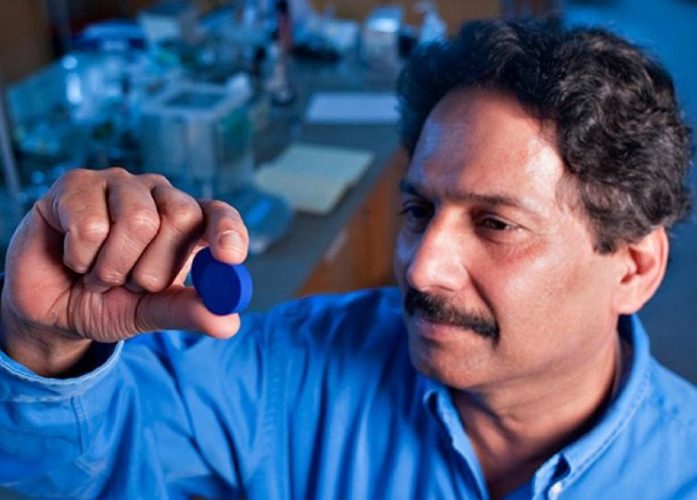
YInMn Blue, the first new blue pigment identified in 200 years, was always an astounding discovery—it just took the general public some time to catch on.
Now, eight years after the pigment was first identified, YInMn Blue—and its creator—are finally getting their due. Samples of the color will appear in “The Blue Experience,” an upcoming exhibition at the Ôkhra, Ochres and Colors Conservatory in the south of France. And this fall, Crayola will launch a new crayon based on the color.
The hue—the first new blue to surface since cobalt in 1802—was born in 2009, when a lab accident led chemist Mas Subramanian and his team to realize that a super-heated mixture of the elements Yttrium, Indium and Manganese created a vibrantly blue complex inorganic pigment (hence the somewhat-clunky name). The first man-made pigment was Ancient Egypt’s Egyptian blue, making YInMn Blue the latest in a historic line of blue discoveries.
LIFESTYLE AND HOSPITALITY
DIGITAL DETOX = RELAXATION RE-TOX
Digital detox is fast becoming the very new thing and turning "we've got wifi" into a very old thing.
When a few entrepreneurs were operating a small surfing inn, which was located in a remote fishing village in China, they always struggled with the poor internet and cellphone signals in that area. At that time it was terrible for most people to live without Wi-Fi, as it is nowadays. They tried their best to solve the problem but the local technology company told them it would need a long time to fix it. They kept apologizing to their guests until one day a guest told them that she had a great time with them because there was no digital disturbance. At that moment they realized that they should shift their marketing strategy.

Sometimes rather than to satisfy guest needs, they realized a better choice is to create guest demand. They prepared a poster with a slogan "Escape from the digital world. Embrace the inner peace." They also created some activities, like surfing summer camp and watching open-air films, to help guests experience disconnection from the noisy world.
These activities not only brought high guest satisfaction, but also increased their revenue.
This experience references a new concept called "digital detox", which is focused on silence in hospitality industry. Dr. Franz Linser, founder of Linser Hospitality, said in 2016 Global Wellness Summit: "wellness programming at hotels/retreats today can sometimes feel like nothing more than an "operational line-item", while future destinations will need to put a deeper, more comprehensive focus on the true "art of living" and that will include a much more powerful focus on silence and nature."
There are many industry pioneers that have already applied service of silence to their resorts, restaurants, gyms, salons and even airports. A wellness monastery named Eremito in Italy, without Wi-Fi or phone signal, offers services of meditation, yoga, hiking, reading, etc. Its brand is "peace, contemplation and re-finding oneself". Other examples of applying service of silence can be found in airports like London City, Bristol, Barcelona, Warsaw and Helsinki, where the announcements are only made at boarding gates (except in true emergencies).
The service of silence is not anti-technology, but will embrace new technologies to create a silent experience for customers. We can identify the future trend of this unique service in hospitality industry. As the world will become noisier and more digitally connected, the service of silence in hospitality industry will have the opportunity to became a popular project for guests to escape from noise temporarily.
Mmm, perhaps a hard copy of our new printed magazine (coming soon to stands near you) will be the better bet for your travels?
We shall see.
Thanks so much to all for reading and for your spectacular comments! Please keep them coming and as always:
WATCH THIS SPACE














